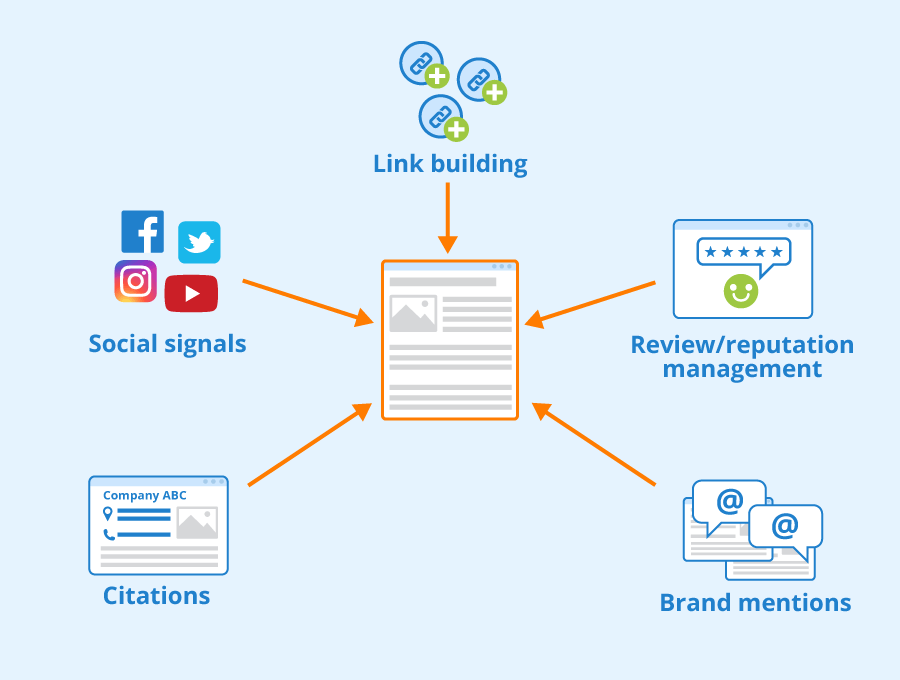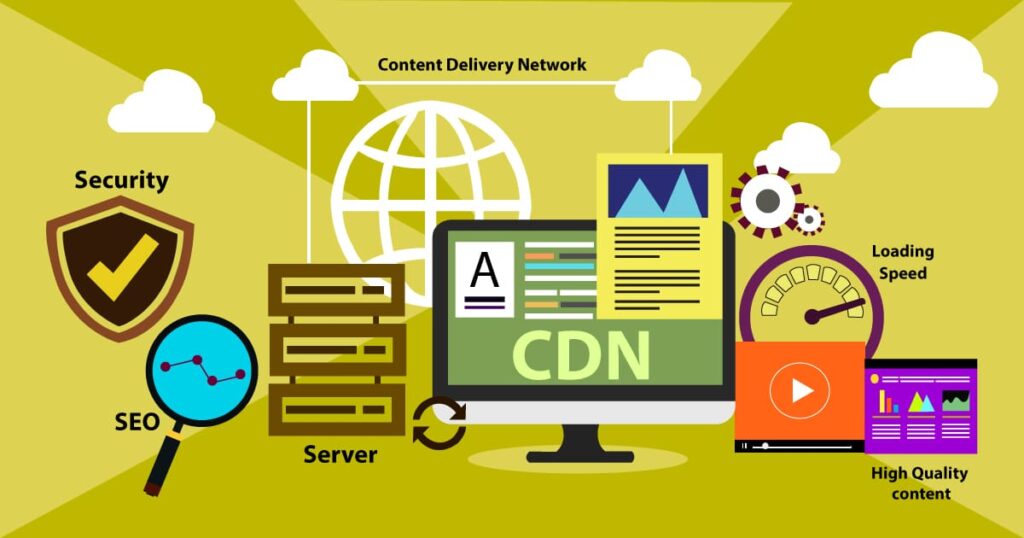A web page can assist you in reaching a bigger audience since more and more people are turning to the internet to seek goods and services. And here comes the SEO.
SEO may assist in boosting a website’s visibility in search engine results. Technical SEO is a subset of SEO. Although technical SEO is equally vital as on-page SEO, most people disregard it due to ignorance.
However, to succeed online, you must have a solid understanding of technical SEO. This article will discuss what this technical SEO means, its importance, and some basic practices. So, keep reading to learn more.
What Is Technical SEO? And Its Importance
Technical SEO enhances a website’s technical components to increase its performance and visibility in search results. Technical SEO encompasses various activities, such as improving mobile friendliness, website security, website performance, and more. To maintain a website’s search engine optimization, technical SEO is a continual process that needs regular monitoring and optimization.
Importance Of Technical SEO
Faster Website Speed: Technical SEO could assist in improving site speed, which is widely recognized as one of the most important ranking factors for search engines. This can also make user experience better.
Increased Indexability And Crawlability: Technical SEO ensures that the pages on your website are efficiently crawled and indexed by search engine bots. This increases the visibility of your website in search results.
Improved Security: You can safeguard your site from attackers and increase user confidence by putting security measures like SSL certificates, HTTPS, and firewalls in place.
Mobile Optimization: Technical SEO helps you ensure that your site is mobile-friendly. Optimizing search engine exposure and offering a great user experience is necessary.
Improved User Experience: Technical SEO can assist you in improving your website’s user experience. By improving the structure and navigation, you may make it simpler for people to use your website.
Differences Between Technical SEO And General SEO
SEO is a crucial component of internet advertising that includes improving a website to boost its exposure and position on search engine result pages (SERPs).
Technical SEO and General SEO are the two primary areas into which SEO can be categorized. The following are some substantial differences between technical SEO and general SEO:
- Focus
Technical SEO is focused on improving a website’s technical components to increase its performance and visibility in search results. The goal of general SEO, on the opposite side, is to increase search engine ranks by attracting organic visitors through the creation of high-quality content and its promotion.
- Results
The crawlability, indexability, and speed of a website may all be enhanced by technical SEO, and these factors can directly affect traffic and search engine rankings. But, general SEO assists in improving content quality, user engagement, and social media presence.
- Implementation
Technical SEO necessitates a high degree of technical knowledge and entails making adjustments to a site’s code, design, and server settings. In comparison, general SEO includes developing and marketing content, constructing backlinks, and connecting with consumers through numerous channels.
Basics And 10 Best Technical SEO Practices
The term “technical SEO” refers to various activities like establishing an XML sitemap, setting up redirects, correcting broken links, ensuring pages are indexed, enhancing page performance, optimizing for mobile viewing, restoring broken links, etc.
The computer programs search engines employ to examine and assess websites are called crawlers (bots). Knowing how search engine crawlers operate is one of the most fundamental ideas in technical SEO.
They examine the code, text, links, photos, and other page elements to index a web page in the database properly. Technical SEO ensures that these crawling procedures run properly and quickly.
Technical SEO Best Practices
- Increase Page Load Speed
Making ensuring that your webpages load quickly is essential for successful SEO. There are several ways to do this, including lowering the size of text and pictures, files, scripts, and HTML code. By saving frequently used data on users’ browsers, caching websites may also help pages load more quickly.
- Use HTTPS
The HTTPS protocol contributes to the security of user information and online activity. Your information will be kept confidential if you set up this protocol. Ensuring your website is HTTPS will increase client confidence in their purchasing decisions and lead to a higher position on search engine results pages (SERPs).
- Fix Broken Links And Pages
Broken links may have a detrimental effect on a website’s user experience and rankings. Your website’s user experience and rankings could be enhanced by routinely checking for broken links and resolving them.
- Upload Your Sitemap To Google
It’s time to have your content indexed when the architecture of your website has been established and made more user-friendly. The first step is to send Google a sitemap of your website.
Sitemap is an XML file that lists every Link on your website. It assists Google bots’ capacity for deciding which pages and information should be crawled and when.
- Implement Structured Data
Structured data makes it easier for Google to comprehend a page’s content. Also, your sites may achieve rich snippets by using the proper structured data markup code.
Rich snippets are much more attractive search results that include more information underneath the description and title. Google offers a variety of organized data markups, so select the one that best matches the type of pages to which you wish to add structured data.
- Try Schema Markup
Schema markup gives search engines more details about a website’s content, making it simpler to comprehend. Schema markup can assist in increasing click-through rates and search engine rankings.
- Create SEO-Friendly Site Architecture
An efficient site structure arranges pages so crawlers can locate your website’s information fast and effortlessly. To make it simpler for search engines to scan and index your website, use a logical and ordered structure with subcategories, categories, and internal linking. Hence, while planning the layout of your website, make sure that your homepage is easily accessible from every page.
- Ensure The Website Is Mobile-Friendly
Google employs a mobile-first indexing strategy. As a result, it indexes and ranks information by looking at mobile versions of websites. Thus, ensure that mobile devices can access your website.
To check it, visit the “Mobile Usability” report in Google Search Console. The report displays the number of pages that impact mobile usability.
- Find & Fix Duplicate Content Issues
Content repeatedly occurring online or on a single website is called duplicate content. Search engines may encounter difficulties due to the same material since it might be difficult for them to distinguish between original content and copies. The Site Audit tool from Semrush will help you determine whether your website has duplicate content problems.
- Use Hreflang For Content in Multiple Languages
The HTML tag “Hreflang” defines the language and location of a webpage. Use hreflang tags if your website has information available in many languages. It assists Google in delivering to users the language and location specific versions of your sites.
FAQs
After reading this article, you may still have some questions. We did our best to answer this topic’s most frequently asked questions. Go through this FAQ to find the answers you’re looking for.
Can I Improve My Website Without Technical SEO?
You may still enhance your website without using technical SEO. But, technical SEO will be more beneficial.
Should I Use PPC Advertising Or Technical SEO?
It is determined by your company’s objectives, budget, and timetable. But, both PPC Advertising and technical SEO may help generate traffic and conversions.
How To Identify Any Technical SEO Errors?
You can conduct a website audit with a specialized SEO tool such as Google Search Console or SEMrush.
Conclusion
Technical SEO is a subset of on-page SEO that optimizes certain website aspects to improve ranks. On the other hand, off-page SEO aims to increase a website’s visibility through multiple methods. Technical SEO impacts SEO, including hosting, XML sitemaps, site performance, and meta robot tags.

















I’m still learning from you, but I’m making my way to the top as well. I definitely love reading all that is posted on your site.Keep the aarticles coming. I enjoyed it!
It’s very simple to find out any matter on web as compared to books, as
I found this article at this site.
I’m glad I discovered this page. I was searching for another website when I stumbled on it. Nice content.
Hey, cool post There is an issue with your website in Internet Explorer; could you please check this? Because of this issue, many people will overlook your excellent article because IE is still the most used browser.
I enthusiastically began browsing this great website with fantastic user content a couple days back. The site owner is gifted at informing readers. I’m impressed and hope they maintain their splendid content skills.